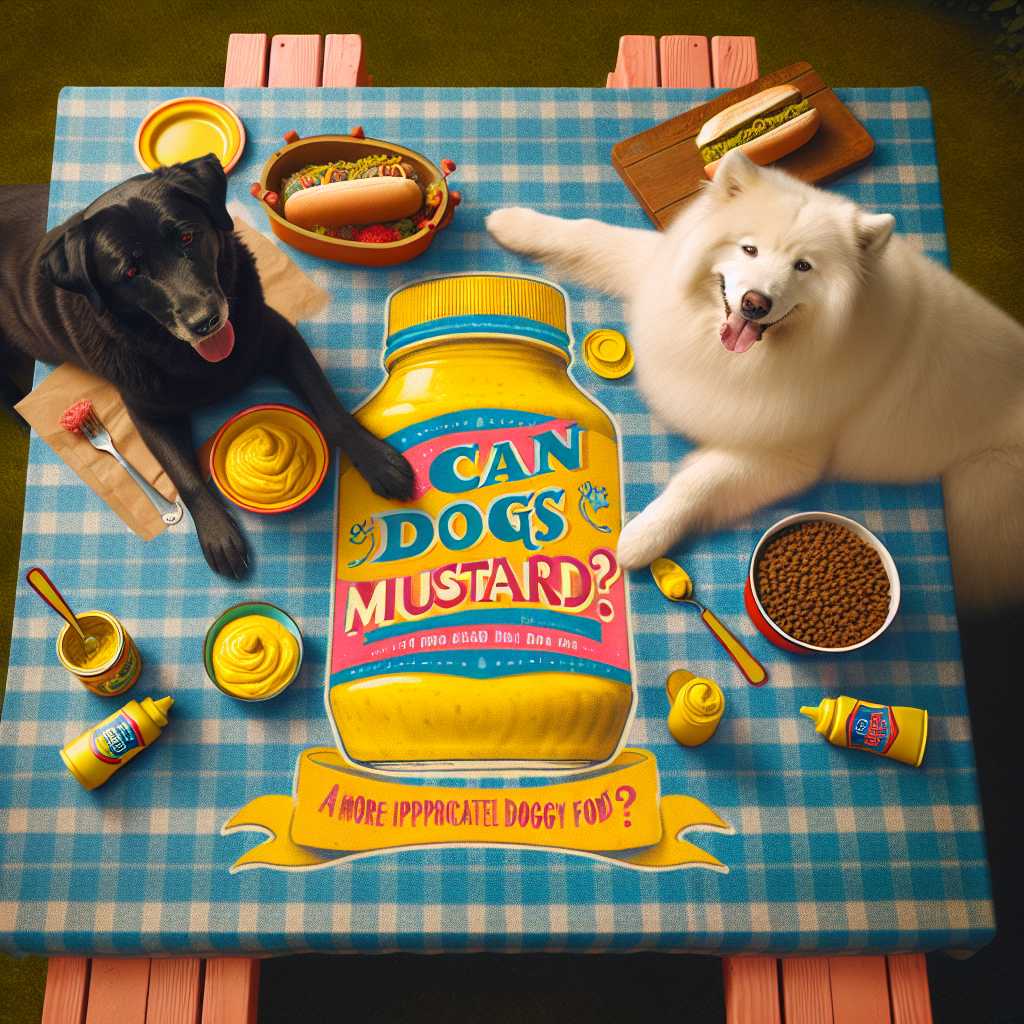As dog lovers, we often find ourselves sharing various foods with our furry friends. While many human foods are safe and even beneficial for dogs, some can be harmful or toxic. One condiment that piques curiosity among pet owners is mustard. So, can dogs have mustard? Let’s dive into the details to understand the implications of sharing this tangy condiment with our canine companions.
Understanding Mustard
Mustard is a popular condiment made from the seeds of the mustard plant. It often contains vinegar, water, and various spices and flavorings. There are different types of mustard, including yellow mustard, Dijon mustard, and spicy brown mustard, each with a unique flavor profile and ingredients.
While mustard itself is not toxic to dogs, it is important to consider its ingredients and the overall context of feeding it to your pet.
The Ingredients of Mustard
Most commercial mustards contain the following main ingredients:
- Mustard seeds: These seeds are not harmful to dogs in small quantities.
- Vinegar: Vinegar is generally safe in moderation, but too much can upset your dog’s stomach.
- Salt: High sodium levels can be harmful, especially for dogs with certain health conditions, such as heart disease.
- Spices: Some spices, including garlic and onion, can be toxic to dogs.
Given these ingredients, let’s analyze if mustard is a safe choice for dogs.
Can Dogs Eat Mustard?
In general, a small amount of plain mustard may not be harmful to dogs, but it is not a recommended treat. Here’s why:
1. Digestive Upset
Mustard is high in acidity and can cause gastrointestinal upset in dogs. This can manifest as vomiting, diarrhea, or an upset stomach, especially if your dog consumes a significant amount.
2. High Sodium Content
Many types of mustard contain salt, which can lead to sodium ion poisoning in dogs if consumed in large quantities. Symptoms of sodium poisoning include excessive thirst, urination, and vomiting, and in severe cases, can lead to more serious health issues.
3. Toxic Ingredients
Certain mustards may contain ingredients harmful to dogs, such as garlic or onion. If you’re considering giving your dog mustard, ensure it doesn’t contain these toxic additives.
4. Lacking Nutritional Value
Mustard doesn’t offer significant nutritional benefits to dogs. Instead, there are many other safe snacks and treats that provide health benefits, such as carrots, apples, and specially formulated dog treats.
What to Do If Your Dog Consumes Mustard
If your dog accidentally eats a small amount of mustard, monitor them for any signs of digestive distress, such as vomiting or diarrhea. If your dog consumes a large quantity or exhibits concerning symptoms, it’s best to consult your veterinarian for advice.
Alternatives to Mustard
If you’re looking for tasty additions to your dog’s diet, consider these healthier alternatives:
- Peanut Butter: A favorite among dogs, just ensure it does not contain xylitol, which is toxic to pets.
- Yogurt: Plain, unsweetened yogurt can be a good source of probiotics for dogs.
- Pumpkin Puree: Rich in fiber and vitamins, plain canned pumpkin is great for dogs and can be added to their meals or served as a treat.
- Carrots and Green Beans: These crunchy veggies are safe for dogs and can be served raw or cooked without seasoning.
Conclusion
While mustard is not inherently toxic to dogs, it is not advisable to feed it to them due to its potential side effects and lack of nutritional benefits. If you want to give your dog a special treat, consider healthier options that will delight their taste buds without risking their health. As always, when introducing new foods to your pet’s diet, moderation is key, and consult with your veterinarian if you have any concerns.





